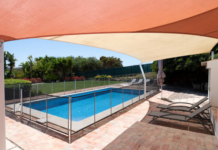The state of Illinois is a great representation of the senior population of the United States as a whole. The median age (meaning half of the population is older and the other half is younger) is around 38, with 35% of the population being over the age of 50. However, the senior citizen age in the United States is considered to be over 65, but many senior living communities allow adults over the age of 55.
Senior living is a crucial topic in Illinois and the entire U.S., as there are many options to choose from. However, not every option is suitable for all seniors, with many factors affecting which living arrangement would be the safest and most comfortable.
Aging in Place
Aging in place refers to remaining in one’s own home as he or she ages. This is the ideal living arrangement for most seniors, as they prefer the familiarity of their home. Aging in place also has the most positive mental health benefits for seniors. However, aging in place can also be dangerous for some seniors, with common hazards including:
- Stairs
- Thick carpeting
- Ceramic tile in the bathroom
Senior falls are very common, and stairs, carpets, and hard and slippery surfaces increase the risk of a senior fall. Simple home renovations such as walk-in showers/bathtubs, vinyl flooring, and stair lifts can allow seniors to age in place safely and comfortably.
Home Health Aides
Home health aides are healthcare professionals who provide medical, housekeeping, and other services to seniors aging in place who may need this extra assistance. This type of service helps ensure that seniors are aging in place safely and comfortably, which is the key to successfully aging in place.
Moving in With Family
While not exactly aging in place, the option to move in with family (creating a multigenerational home) allows seniors to remain in a home-like setting and maintain some level of independence. This arrangement may also require home renovations for safety reasons, but it also gives the family of the senior more peace of mind.
Independent Living Facilities
Illinois has more than 650 independent living facilities across the state. This type of care allows healthy and active seniors who may not be able to continue living in their own homes (for various reasons) to continue living independently.
Retirement Communities
The most common type of independent living facility is a retirement home or retirement community. These communities typically offer apartment-style living for adults over the age of 55 and often include meeting rooms, gyms, swimming pools, and many other amenities for seniors to enjoy. Services such as transportation, housekeeping, and meals are also offered. In Illinois, the cost of living in a retirement community can range anywhere from $575 to $3,575 per month, with the more expensive facilities being located in Chicago.
Assisted Living Facilities
In contrast to independent living, assisted living means that seniors are not fully independent, and may be fully dependent on a medical staff. Also known as aged care, Illinois has more than 820 of these facilities across the state. Residents of assisted living have help with transportation, housekeeping, and meals, but also with basic activities of daily living (e.g., bathing, dressing, etc.) in many cases. In Illinois, assisted living can cost anywhere from $1,050 to $6,500 a month.
Nursing Homes
Nursing homes are the most common type of assisted living facility. They provide 24/7 care to its residents, which often includes medical care. Unfortunately, this type of assisted living also sees the most senior abuse and neglect, possibly because seniors in nursing homes are fully dependent on staff and often can’t defend themselves. Because of this, it’s important for victims (and their families) of nursing home abuse to contact a personal injury lawyer in Chicago or another Illinois city for justice.
Other Types of Facilities
Respite and Adult Day Care
Illinois has 800+ respite care centers and 100+ adult day care centers. Respite care provides temporary (from a few days to a few months) relief for caregivers caring for an aging loved one who needs constant care, whereas adult day care centers provide care for a few hours. Respite care costs an average of $62,050 per year, and adult day care averages $17,300 per year.
Memory and Hospice Care
Memory care is similar to a nursing home, but focuses on seniors with dementia-related illnesses. The average cost of memory care in Illinois averages about $66,200 per year. Hospice care focuses on terminally ill patients of all ages. The goal isn’t to cure, but to make their patients as comfortable as possible in their final days.
There are many options for senior living, and the biggest deciding factor is the senior’s health. Fortunately, many seniors are healthy enough to live independently in whichever way they choose. However, those who need assistance in care should look into the different types of assisted living.











